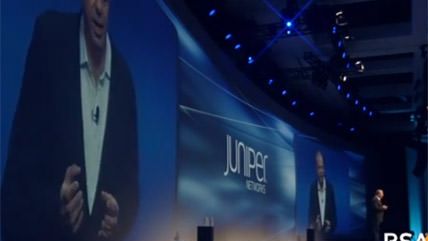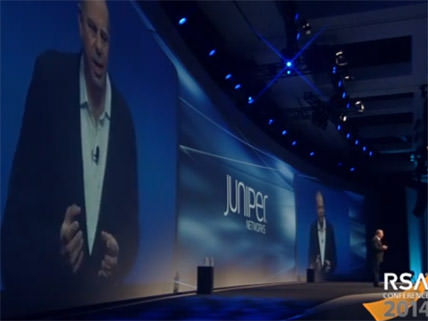Security Exec: 'First World Outrage' About Privacy Is a Joke


Do Americans–particularly those in the tech industry–really care about privacy? Nawaf Bitar, a security executive with Juniper Networks, posed this question at the RSA Conference on cybersecurity yesterday, and offered a few ideas on how to act if they want to affect change.
"Our privacy is being invaded. Our intellectual property is being stolen. The attack on our information is outrageous," said Bitar, blaming "criminal organizations, corporate thieves, hostile governments, friendly governments." He gave the U.S. government the benefit of the doubt that the post-9/11 surveillance systems were well-intentioned but have caused "stunning" invasions of privacy.
Most Americans would likely agree with the sentiments he expressed, but Bitar doesn't think they're doing anything meaningful about privacy breaches and are even complicit for standing by as it continues.
"It's easy to talk about outrage. Liking a cause on Facebook is not outrage. Retweeting a link is not outrage," he said, contrasting such forms of "First World outrage" with historical anti-government action, such as the Tiananmen Square protests and the self-immolation of Tibetans.
Bitar is correct in that internet activism is sometimes without impact. Critics of slacktivism can point to studies that show Facebook "likes" for charities actually result in less financial support. But, physical protests aren't necessarily a better way to solve internet issues. For example, "The Day We Fight Back" rallies against the National Security Agency earlier this month fell flat, whereas the web-based initiatives against the Stop Online Piracy Act in 2012 played a major role in preventing the bill from moving forward.
As PC Magazine notes, the security executive "only briefly touched on solutions" of his own.
Bitar called upon the crowd to reevaluate whether or not privacy is a "real" value or just a "stated" one. He also suggested that in order to maintain a "moral high ground," industry workers would have to resist waging cyberwars of aggression and instead could develop "defenses" that would "interfere with attackers… break algorithms… [and] disrupt data collection" to the point that malicious entities would get frustrated and give up.


Show Comments (24)